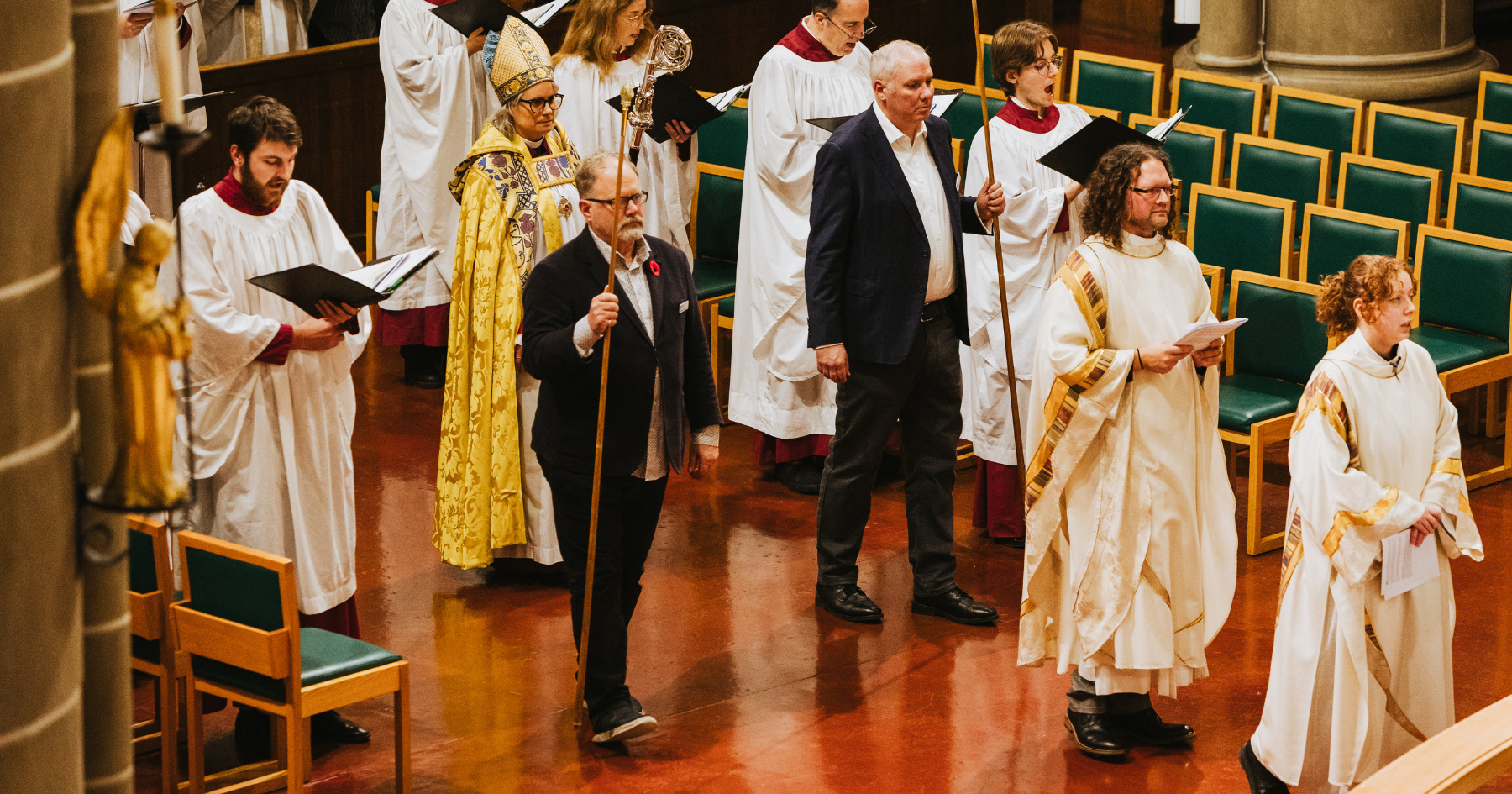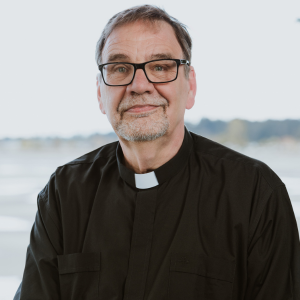On Nov. 1–2, 2024, the Anglican Synod of the Diocese of British Columbia met for the 102nd Synod. That mouthful is our full, official name, which is why a few years ago we filed with the BC Business Registry an official operating name: The Diocese of Islands and Inlets.
On Friday, Nov. 1, all were invited to join in worship at Christ Church Cathedral in Victoria. Bishop Anna Greenwood-Lee gave her Bishop’s charge and set the theme for this synod: together on the path.
On Saturday, with Bishop’s charge in our hearts, we met at the Baumann Centre next door to St John the Divine, Victoria, for the business portion of the synod. After the land acknowledgement, delegates heard the keynote speaker, Scott Sharman, talk about what he called “synodality.” Sharman is the executive officer and canon theologian in mission of the diocese of Edmonton, and the animator for ecumenical and interfaith relations for the national church.
Sharman told us that “synod” is a term that comes from the Greek “syn” meaning “with” and “hodos” meaning “path” or “road.” Putting them together, he explained, leads us to being “together on the path.” Being synodical is not just a two-day event that happens every two years, but rather a way of gathering, worshipping and living together that has three elements: it is collegial, dialogical and provisional. Collegial, rather than hierarchical, in that we are called to all be ministers of faith; dialogical in that we are called to not just tell others of our faith but are also called to listen and learn from them about their experience of God; and provisional in that we have never completed the journey but are always on the path.
Following Sharman’s keynote, the meeting turned to its business: that of voting and passing motions.
Elected for the term until the next synod (which will be in the fall of 2026) were:
Lay secretary: Susan Rand
Clerical secretary: Heather Robinson
Diocesan treasurer: Joel Hefty
Diocesan court: Walter Stewart, Jane Morley and Elizabeth Northcott
Diocesan council: Marjorie Aitken, Marion Edmondson, Ed Norman, Trish Vollman-Stock, Cory Herrera, Craig Hiebert, Helen Love and Kelly Duncan.
Representatives to General Synod: Helen Love, Ian Alexander, Michael Wolff, Lon Towstego, Jenny Replogle and Kirsten Evenden.
Representatives to Provincial Synod: Helen Love, Julie Foster, Cory Herrera, Lon Towstego and Stephanie Wood.
Our new treasurer, Joel Hefty, gave a report on the finances of the diocese since the last synod in May 2023. He also spoke of the changes that are being instituted in our financial systems that will help make the diocese more efficient and more easily managed by parishes and the synod office, and he introduced our new finance director, Gregory Ptolemy.
The synod then turned its mind to the motions brought by diocesan council, on the recommendation of the canons committee, for a new set of canons and regulations. The original canons and regulations were promulgated under the Synod Incorporation Act of the BC legislature in 1889. Since that time, the canons and regulations have been amended and re-amended without a complete re-write — until now.
In May 2023, at the last synod, the canons committee was given the task of completely re-writing the constitution, canons and regulations, to present to this synod a version that:
- Is in plain language;
- Is consistent in terms, process and formatting;
- Reflects our current experience;
- Reflects the appropriate division among canons, regulations and policy;
- Is forward looking, allowing for future flexibility where flexibility is appropriate.
Chancellor Isabel Weeks tabled, on behalf of diocesan council, a new version of the canons and regulations, as well as a few minor changes to the constitution. These new canons and regulations had been the product of eighteen months of drafting, consultation and amendments. The final product was approved by a unanimous vote of synod and will come into force on Jan. 1, 2025. The constitutional amendments proposed were approved by this synod but must be approved by two synods, so will come once again before Synod 2026 for final consideration.
Chancellor Isabel Weeks pointed out that these new canons were created collegially, in that they were written by a committee of four laity and one cleric. They were dialogical, as the committee listened to and incorporated the input from so many others. And they are provisional as they are a living document, written in a way that allows for future amendments that may be required.
Synod closed with final remarks from Scott Sharman, followed by a surprise jazz version of the motion of thanks by Craig Hiebert and a blessing by Bishop Anna.
Gathering as a synod is the basis for our diocesan governance and happens once every two years, or so. It is hoped that each synod helps make our life together easier and smoother, and clears the way for us to better worship and serve God, our church and our communities. It feels as if Synod 2024 has admirably done that.




